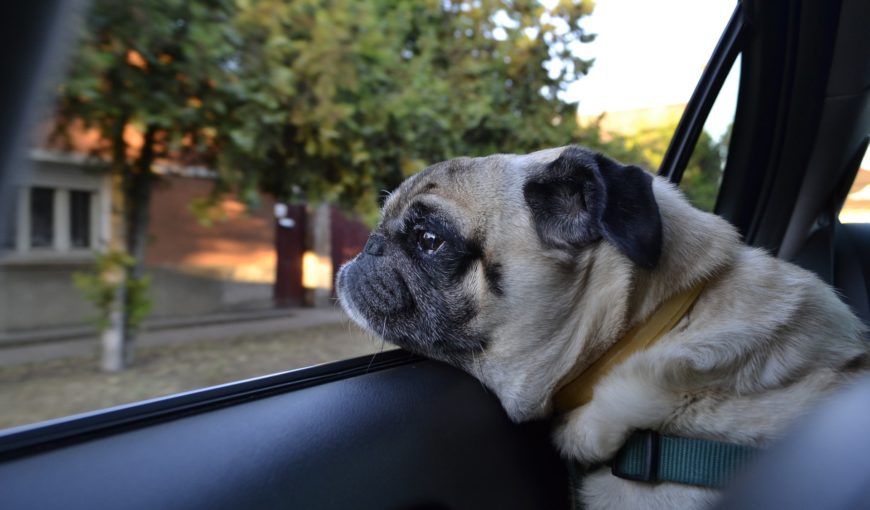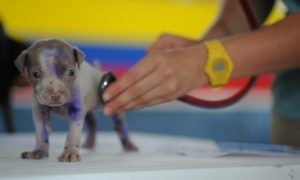Overheating and Heatstroke

As ambient temperatures approach body temperature, animals have a very difficult time keeping cool, especially dogs, which can only lose body heat through panting. Panting moves cool air around the body and nasal passages.
A normal respiratory rate for a dog is between 20-30 breaths per minute, but when panting a dog may breathe 200-400 times a minute, so it is easy to see how quickly cool air can circulate through a dogs’ body. If a dog doesn’t have access to cool air, they are at risk of overheating.
Overheating can quickly develop into heatstroke, and heatstroke is a medical emergency. If you see any of these signs, begin first aid and get your dog to the hospital, or the nearest emergency facility right way.
Signs of heatstroke include: A rectal temperature over 104º (101.5º is normal), Rapid breathing and panting, excess salivation and thickened saliva, fatigue or depression, muscle tremors, staggering, red, brick-colored gums or very pale gums.
If you suspect overheating or heat stroke, use care when applying first aid to cool the dog down. Too rapid cooling can result in shock. Bring your dog into a cool area right away. Offer cool, but not cold water, but don’t force the dog to drink. Apply cool water to the dog’s feet or groin.
Do NOT use ice water—this interferes with cooling. Do NOT wrap the dog in wet towels, but you can use cool wet towels to apply the cool water to exposed skin. Do NOT immerse the dog in a pool or tub of water. Bring the dog for veterinary care immediately and continue to try to cool the dog down on the way.
Treatment can include IV fluids, hospitalization, blood work, and cool water enemas.
Heatstroke affects ALL body systems, and can cause pulmonary edema, gastrointestinal bleeding, decreased platelet function and impaired kidney function. A dog that has had heatstroke and survived is at greater risk to experience heatstroke again due to the damage to the thermoregulating center of the body.
Unfortunately, even with treatment, about half of dogs suffering from heatstroke die, so keeping cool and preventing overheating is the best course of action.





